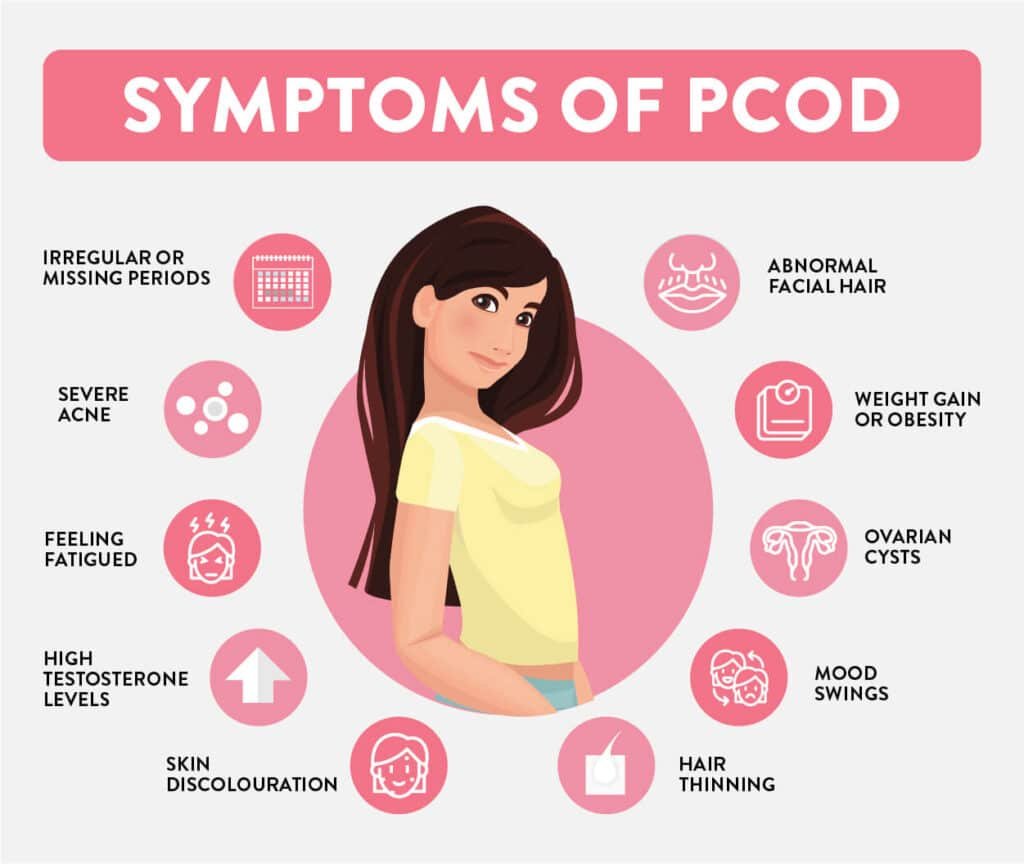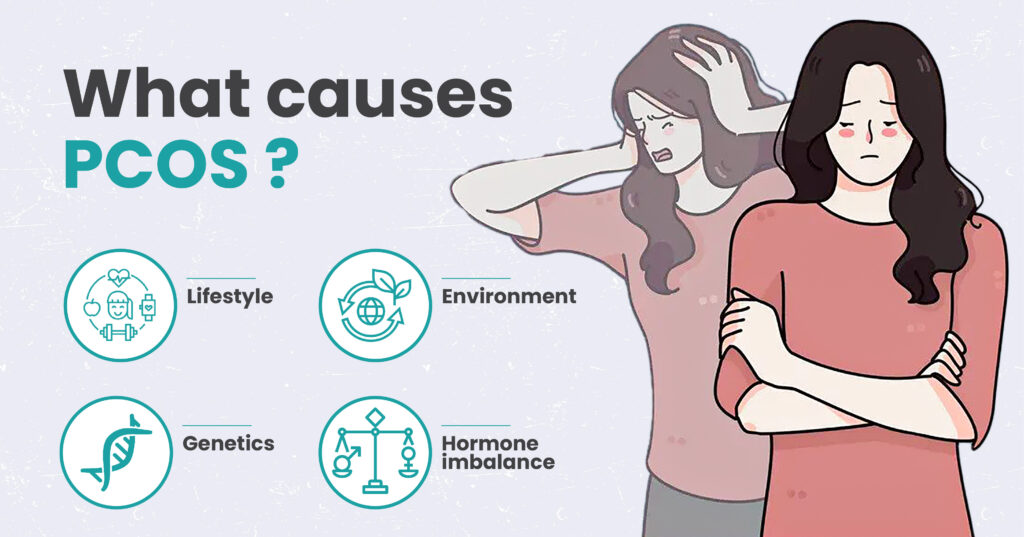
How Functional Medicine Can Help Solve Your PCOD Issues

How Functional Medicine Can Help Solve Your PCOD Issues
Polycystic Ovarian Disease (PCOD) is one of the most common health concerns affecting women across the world today. Research suggests that one in every ten women of reproductive age struggles with PCOD, and the numbers continue to rise due to modern lifestyle changes, poor nutrition, stress, and environmental factors. Women with PCOD often face irregular menstrual cycles, weight fluctuations, acne, excess hair growth, hair thinning, mood swings, and fertility challenges.
Conventional medicine typically approaches PCOD by managing symptoms through birth control pills, insulin-sensitizing drugs, or fertility medications. While these treatments may bring temporary relief, they rarely address the underlying causes of PCOD. Functional medicine, on the other hand, offers a holistic, root-cause approach that focuses on restoring balance to the body rather than simply masking symptoms. This makes it a powerful solution for women who want long-term healing and sustainable results.
In this article, we explore how functional medicine can help solve PCOD issues, the root causes it addresses, and why it may be the missing link in your journey to better health.
Understanding Functional Medicine
Functional medicine is a personalized, systems-based approach to healthcare that seeks to identify and address the root causes of disease. Instead of isolating symptoms and treating them in silos, functional medicine views the body as an interconnected system where nutrition, hormones, gut health, stress, environment, and lifestyle all play critical roles.
When applied to PCOD, functional medicine does not stop at symptom control. It looks deeper into why hormonal imbalances are occurring in the first place. This involves advanced lab testing, a thorough medical history, lifestyle evaluation, and the development of a customized plan that integrates nutrition, supplementation, movement, stress management, and long-term lifestyle changes.
Root Causes of PCOD That Functional Medicine Addresses

Insulin Resistance
One of the most significant drivers of PCOD is insulin resistance. When the body is unable to use insulin effectively, it produces excess insulin. This excess insulin stimulates the ovaries to release more androgens (male hormones), leading to irregular cycles, acne, weight gain, and hair growth.
Functional medicine approaches insulin resistance by recommending low-glycemic, nutrient-dense diets, consistent physical activity, and targeted supplementation such as inositol, chromium, or magnesium. By improving insulin sensitivity, functional medicine helps regulate ovulation and hormonal balance.
Hormonal Imbalance
Women with PCOD often experience elevated levels of androgens and disrupted estrogen-progesterone balance. This imbalance contributes to irregular cycles, fertility challenges, and skin concerns.
Functional medicine works to restore hormonal balance naturally through nutritional strategies, herbal support such as adaptogens, omega-3 fatty acids, and lifestyle interventions. These changes not only improve reproductive health but also support mood, energy, and long-term metabolic stability.
Chronic Inflammation
Chronic low-grade inflammation is another hidden contributor to PCOD. Inflammation worsens insulin resistance, disrupts hormones, and fuels symptoms such as acne, fatigue, and weight struggles.
Functional medicine addresses inflammation through anti-inflammatory diets rich in whole foods, antioxidants, and healthy fats. Foods such as leafy greens, berries, nuts, seeds, and fatty fish play a crucial role in calming the inflammatory response.
Gut Health Imbalances
The gut plays a central role in hormonal regulation, detoxification, and immune balance. Women with PCOD often struggle with dysbiosis (imbalance in gut bacteria), poor digestion, or leaky gut, which further disrupts hormones.
Functional medicine supports gut health with probiotics, prebiotic fibers, fermented foods, and gut-healing protocols. By restoring digestive balance, functional medicine enhances nutrient absorption, reduces inflammation, and improves hormone metabolism.
Stress and Sleep Disorders
Chronic stress elevates cortisol levels, which disrupt reproductive hormones and worsen PCOD symptoms. Poor sleep also impacts insulin sensitivity, metabolism, and emotional health.
Functional medicine incorporates stress-management practices such as yoga, breathwork, journaling, and mindfulness. It also emphasizes the importance of high-quality sleep hygiene, ensuring that the body’s natural repair and hormonal cycles are restored.
Functional Medicine Approach to PCOD
The functional medicine model does not use a one-size-fits-all plan. Every woman’s body is unique, and so is her PCOD journey. However, the following principles are often central to functional medicine protocols for PCOD:
Personalized Nutrition

Food is one of the most powerful tools in functional medicine. For PCOD, the focus is on whole, unprocessed foods that stabilize blood sugar, reduce inflammation, and support hormonal balance. This includes:
High-fiber vegetables, legumes, and whole grains
Lean proteins such as fish, poultry, and plant-based sources
Healthy fats like avocado, olive oil, nuts, and seeds
Herbs and spices with medicinal properties, such as turmeric and cinnamon
Refined carbohydrates, sugary foods, and processed snacks are minimized to reduce insulin spikes and hormonal disruptions.
Movement and Exercise
Functional medicine emphasizes consistent movement without overexertion. Gentle yet effective exercises such as strength training, yoga, pilates, and walking help improve insulin sensitivity, boost mood, and support hormonal balance. Over-exercising, which can stress the adrenal system, is avoided.
Targeted Supplementation
Based on lab results, functional medicine practitioners may recommend supplements that directly support PCOD healing. These may include vitamin D, omega-3 fatty acids, inositol, chromium, magnesium, and adaptogenic herbs. Each plan is tailored to the individual’s specific deficiencies and health needs.
Stress and Sleep Optimization
Since stress is a key driver of hormonal imbalances, functional medicine protocols integrate stress-reduction strategies. Meditation, deep breathing, and restorative practices are encouraged. Sleep quality is addressed through sleep hygiene practices, regular sleep schedules, and sometimes natural supplementation to support restful sleep.
Advanced Testing and Monitoring
Unlike conventional medicine that may stop at basic blood tests, functional medicine uses advanced testing to identify root imbalances. This may include hormone panels, insulin resistance markers, gut microbiome testing, inflammation markers, and nutrient deficiencies. These insights allow for highly personalized care plans.
Why Functional Medicine is Effective for PCOD

Functional medicine differs from conventional approaches in several ways:
It addresses root causes instead of masking symptoms.
It creates personalized treatment plans based on the individual’s unique biology.
It integrates nutrition, lifestyle, and advanced testing into the healing journey.
It emphasizes long-term healing, reducing the risk of recurrence and dependency on medication.
It considers the whole person, including mental health, sleep, stress, and emotional well-being.
This comprehensive approach empowers women to take charge of their health and restore balance from within.
The Midas Wellness Hub Approach to PCOD
At Midas Wellness Hub, we combine the principles of functional medicine with lifestyle healing to create sustainable solutions for PCOD. Our practitioners use advanced diagnostics, personalized nutrition, targeted supplementation, and holistic lifestyle strategies to help women restore hormonal balance and overall well-being.
We recognize that PCOD is not just a reproductive disorder but a systemic imbalance that affects multiple areas of health. Our goal is not only to manage symptoms but also to empower women with the tools and knowledge they need for long-term transformation.
Conclusion
PCOD is a complex condition that requires more than quick fixes or temporary medications. Functional medicine provides a path to healing by uncovering root causes, addressing imbalances, and promoting sustainable lifestyle changes. Through a combination of nutrition, movement, supplementation, stress management, and advanced diagnostics, functional medicine offers women with PCOD a holistic solution for long-term health.
If you are struggling with PCOD symptoms such as irregular cycles, weight issues, acne, or fertility challenges, functional medicine may be the breakthrough you have been seeking. At Midas Wellness Hub, we are dedicated to guiding you on this journey of healing from within.
Take the first step toward balance, vitality, and wellness by exploring functional medicine for your PCOD today.
